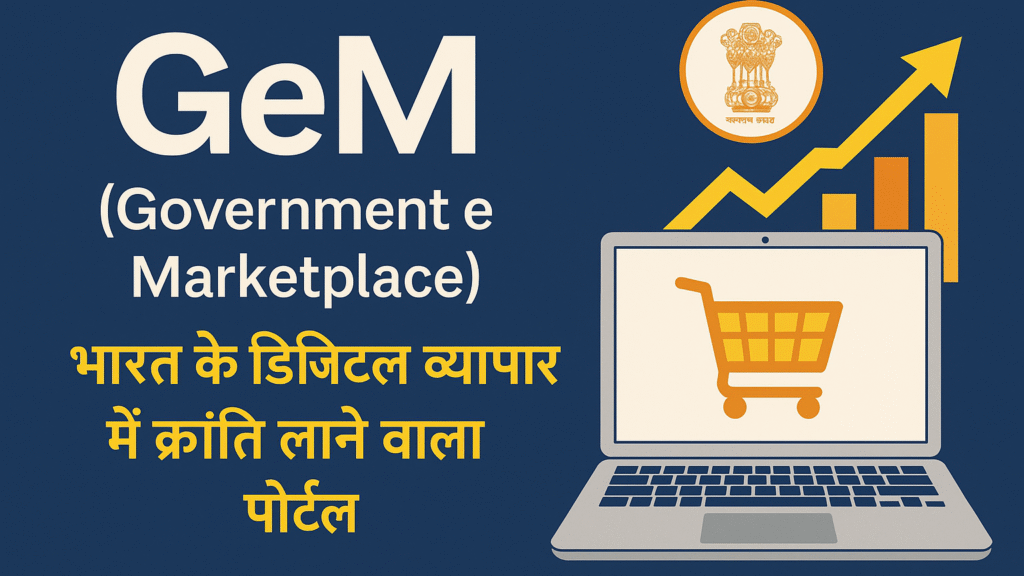GeM Vendor Assessment Policy and Process: A Simple Guide for Sellers
India’s public procurement landscape has evolved rapidly in the past few years, thanks to the launch of the Government e-Marketplace (GeM). Designed to streamline and digitize government purchases, GeM brings transparency, efficiency, and inclusivity to the public procurement process. But if you’re a seller aiming to supply products or services on GeM, you need to clear an important step — Vendor Assessment.
Let’s explore what this assessment means, how it works, and how you can smoothly complete it.
What is GeM Vendor Assessment?
Vendor Assessment is a quality check and validation process that helps ensure that sellers on the GeM platform are reliable, capable, and equipped to meet government procurement standards. It’s a way to assure buyers — who are mostly government departments — that the sellers they engage with have the infrastructure, financial strength, and operational capacity to deliver as promised.
Why Vendor Assessment is Important
- Builds Trust with Buyers: A positive vendor assessment signals your credibility to government buyers.
- Improves Visibility: Assessed vendors are often ranked higher and receive better opportunities.
- Ensures Fair Play: It helps GeM maintain a level playing field by verifying each seller’s capacity.
Who Conducts the Assessment?
GeM has partnered with RITES Ltd., a Government of India enterprise, as the third-party assessment agency. RITES carries out detailed evaluations of vendors, ensuring that the process is fair, standardized, and transparent.
Who Needs to Undergo Vendor Assessment?
Not every seller is required to complete vendor assessment. It is mandatory for:
- OEMs (Original Equipment Manufacturers)
- Sellers who want to list certain sensitive categories
- Those who wish to become OEM-verified on the platform
For others, the assessment might be optional but is still highly recommended.
Types of Vendor Assessments
GeM offers different types of assessments depending on your business structure and offerings:
- Product-Based Assessment: Required for manufacturers or OEMs. It focuses on verifying production capacity, quality control systems, and product standards.
- Service-Based Assessment: For service providers — it reviews manpower strength, past experience, and service delivery capabilities.
- Trader Assessment: Evaluates warehousing capacity, inventory management, and business credibility.
Step-by-Step Vendor Assessment Process
Here’s how the GeM vendor assessment process works:
Step 1: Registration on GeM
First, sign up on the GeM portal as a seller. You’ll need to submit basic details like PAN, GSTIN, and company profile.
Step 2: Initiate Vendor Assessment
Navigate to the “Vendor Assessment” section on your GeM dashboard. Choose the category (product/service/trader) and pay the applicable fees.
Step 3: Document Submission
You’ll need to upload documents such as:
- Company incorporation certificate
- Audited financial statements
- ISO or quality certifications (if available)
- List of machinery and manpower (for OEMs)
- Details of past government or private sector orders
Step 4: RITES Ltd. Evaluation
RITES will evaluate your submission through document verification and physical inspection (if needed). You may be contacted for clarification or additional details.
Step 5: Assessment Result
Once the assessment is complete, you’ll receive a report. If successful, your GeM profile will be updated with a “Vendor Assessed” tag, which greatly enhances buyer confidence.
Benefits of Successful Vendor Assessment
- Priority Listing: Your products/services appear higher in search results.
- Increased Buyer Confidence: Verified status makes buyers more likely to choose you.
- Access to OEM Tag: For manufacturers, it helps you stand out in highly competitive categories.
Common Reasons for Assessment Failure
- Incomplete or inconsistent documentation
- Lack of physical infrastructure or facilities
- Financial instability
- Misrepresentation of business capability
To avoid these pitfalls, ensure your documents are up to date, accurate, and professionally presented.
Tips to Prepare for Vendor Assessment
- Organize Documentation: Keep all statutory, financial, and quality-related documents ready.
- Maintain a Professional Setup: Make sure your production or service facility is inspection-ready.
- Train Your Team: Make sure your team is aware of GeM and RITES procedures.
- Stay Transparent: Avoid exaggerating your capabilities.
Post-Assessment Compliance
After you’re successfully assessed, continue to meet GeM’s standards. If any complaints arise or performance drops, your assessment can be revoked. Keep your documents and business practices aligned with the requirements.
Renewal and Validity
The assessment is usually valid for three years, after which it must be renewed. Always plan for renewal well in advance to avoid lapses in your verified status.
Final Thoughts
Vendor assessment on GeM is more than just a checkbox — it’s your gateway to bigger opportunities, higher visibility, and long-term trust with government buyers. Though the process may seem tedious, it pays off in the form of consistent and high-value procurement orders.
By preparing well and maintaining high business standards, you can ace the vendor assessment and grow your business on GeM.
For GeM official details: Click Here For Approved Vendor Assessment Fees to be paid refer last page(5) of PDF opens after click here
User Manual for Vendor assessment by RITES: Click Here
FAQs
Q1. Is vendor assessment mandatory for all GeM sellers?
No, it is mainly mandatory for OEMs and sellers dealing in sensitive categories.
Q2. Who performs the vendor assessment?
RITES Ltd., a Government of India enterprise, is the authorized assessment agency.
Q3. How long does the assessment take?
Typically, 30–45 days depending on the business and responsiveness.
Q4. What is the cost of vendor assessment on GeM?
It ranges from ₹1100 to ₹5000 based on category and type of business.
Q5. What happens if I fail the assessment?
You can re-apply after addressing the deficiencies highlighted in the assessment report.

